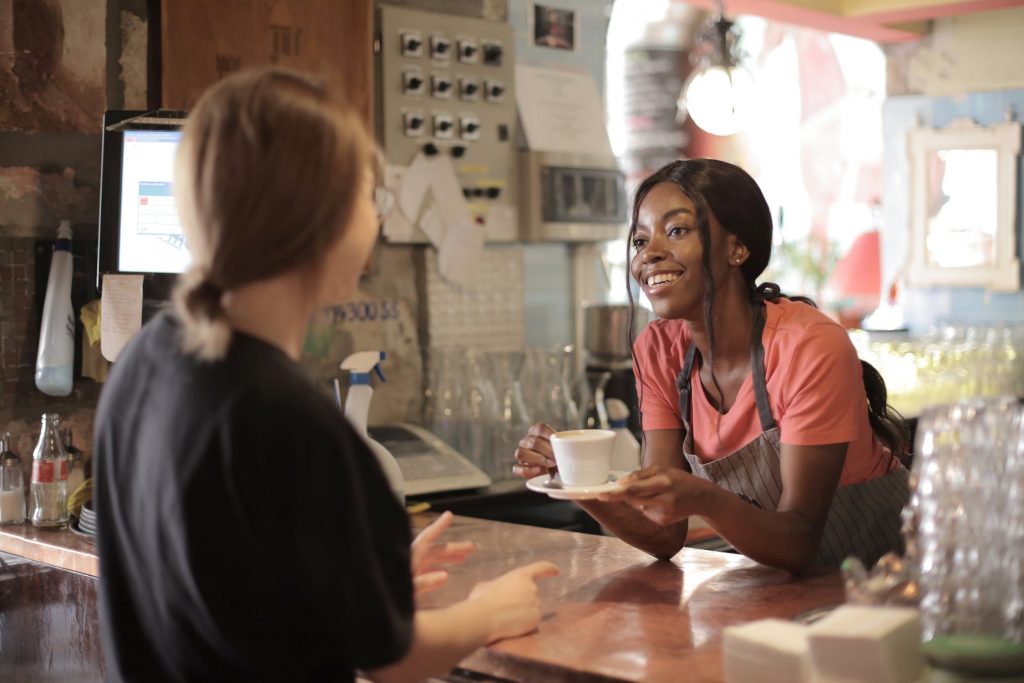A look to the days ahead, what will change permanently in marketing as we move closer and closer to the new normal.
Governments across the globe are slowly but surely drawing out and finalising plans to unwrap the social restrictions that have been in place for much of the last 12-15 months. More businesses will soon be able to re-open and collectively people seem to believe now that normal may soon be returning. Perhaps however, there will be ever-lasting changes to the way our society works, and this may not be a bad thing.
In marketing, the sector as a whole has performed well throughout the pandemic. Many businesses have had to adapt to a more digital approach in branding & advertising which has massively increased the demand for digital marketing services such as; Website Design, Search Engine Optimisation (SEO) and Social Media Marketing.
Other areas have also adjusted largely, strategising on being able to demonstrate a clear message of both Corporate Social Responsibility (CSR) & positive Brand Ethics has become vital in a world where these areas are becoming more scrutinised for businesses.
In this blog, we’re going to address the areas of marketing that have changed and will most likely remain this way in a world after covid-19.
Trust in Brand Ethics, Purpose & Sustainability
Since March 2020 there have been numerous studies carried out by global institutes on the habits of consumers during the pandemic, as well as noting what their intended habits of consumption will be in a post-covid world.
Some of the most notable findings from these studies are that consumers are maintaining an interest in a brand’s ethics, purpose and their commitment to becoming environmentally sustainable as a factor in deciding whether or not to purchase from/do business with them.
Major US retail think tank McKinsey has found that 88% of consumers now prefer to deal with companies who are delivering sustainability and demonstrating a commitment to a healthier world.
Whilst a global study by Forbes uncovered that consumers are now 4 to 6 times more likely to do business with a company that demonstrates an ethical and clear purpose.

These changes to habits of consumers has highlighted to marketers the importance of portraying and emphasising the areas of brand purpose and sustainability. It is becoming less and less successful to simply undercut competitors on price or to focus on quality of product/service. People want to buy from places they feel valued and that they feel is working to improve the overall quality of their society rather than simply profiting from it.
Marketers now need to look at the best ways to transform these consumer trends into Unique Selling Points (USP’s). Taking clothing brands and ensuring that they can sell sustainability or taking B2B service providers and ensuring that they demonstrate clear purpose in their brand’s message are sure-fire ways to hit these criteria in the minds of their target audience.
Notably, a brand we have been working with recently; Buck Off Equestrian are an online casual clothing retailer specialising in equestrian clothing. A clear brand message that the business has is that all of their products are 100% sustainable, something that as aforementioned by McKinsey, is now an important factor for purchasing in the minds of around 88% of consumers. Not only this, but the brand is also now conveying a clear purpose to potential consumers. The clothing is being designed by a woman with a keen interest in equestrian and with a message of sharing/expressing her passion with other horse lovers. Again, this clarity of brand purpose will enable her to hit the criteria for consumers who, according to Forbes, are now actively looking for these traits when making a purchase.
Digital Shopping & Ecommerce
Ecommerce and digitally generated sales have become one of the only ways for consumers to indulge their shopping habits and for businesses to continue making turnover during the pandemic. Some research has found that almost 5 years worth of ecommerce transactions took place over just an 8 week period in 2020.
This, somewhat forced, increase in demand for digital shopping has led to the majority of businesses having to adjust and venture into ecommerce as the new money-maker rather than their physical store location. This has seen a direct increase in the expected turnover of ecommerce platform Etsy of around 32%.
Whilst many shop owners and small traders will be welcoming the news that they will soon be able to re-open their doors to shoppers in-store, the ecommerce expansion is certainly set to continue in a post-covid world.

This rise in the number of small time ecommerce sellers on platforms such as Etsy has shown just how many working people have decided to venture into ecommerce as a secondary income stream. Couple this with the amount of jobs set to be lost as a result of the economic impact of covid-19 and it will be sure to result in even more people turning to this platform as an income stream.
Not only this phenomenon, but it is becoming increasingly clear to traditional storefront owners that the simplicity of trading through ecommerce platforms is more-efficient and less expensive. In the immediate time after the pandemic business owners will be certainly looking at ways to minimise overheads and maximise profit margins. Therefore the ecommerce option will be an essential part of trading in the future.
Localising Services
We mentioned previously in a blog post about the increase in Local SEO since the beginning of the pandemic. However, what was only briefly touched on was the motive behind the increase in Local SEO, which of course was that people have now become once again more dependent on local services/businesses.
The close to total shutdown of travel along with large portions of the retail, hospitality & trades sector made it impossible for people to source products/services from outside of their local area. This created an immediate increased demand for local SEO as businesses prioritised appearing in local searches as the most effective way for them to attract and retain customers during the pandemic. This was seen clearly in a recent statistic released by Backlinko that almost half of Google’s searches in 2020-21 have had local intent from the user.
Adjusting to the hyperlocal activity of search engine users has been a test of skill for many marketers. From working on nationwide, or sometimes global, advertising/SEO campaigns to managing the local presence of businesses has been a quick change to their work. Simple elements of marketing that were perhaps given less attention previously such as Google My Business listings and the impact of local directories are now seen as essential parts of a businesses marketing strategy.

This coupled with the rise in competition for local search rankings that was not previously as cut-throat has meant that SEO strategists have had to find new and innovative ways to boost local search rankings for their clients/employers. Industries that previously had little local search competition could be showing on the 1st page of Google for local searches with little work being done, however now, even niche micro-business sectors are in a battle with competitors as we adjust to the new normal of local SEO.
It is expected that this change will remain in a post-covid world. Whilst many businesses will be able to once again trade further afield, the success enjoyed by many in their local area that they were unaware could be attained previously will certainly be fuel for the continuation of high powered local SEO campaigns.
For some businesses also, it has become clear that local trade can reduce overheads; being able to deliver to or visit customers without having to encounter travel and/or accommodation expenses is attractive to business owners. Considering that the economy is expected to enter a serious recession in the aftermath of the pandemic it will be certain that businesses will look to this profitable and less expensive way of doing business in order to keep the company in the black.
Conclusion
As we move closer and closer to the new normal, something we’re sure everyone is looking forward to, it is becoming clearer to many marketers that these adaptations that occurred through the pandemic are more than likely here to stay.
That for us is not a bad thing! Certainly there will be those who want the world to return to exactly the way it was, however that’s simply not practical. At Assured Marketing, we are proud to work with smaller local businesses who in many ways will be able to benefit from these changes in the long-term.
Whilst large companies such as Tesco & Amazon have profited from the pandemic, the rise in societies’ need for local business has also increased, and their attitude towards business purpose and brand ethics are making local SMEs the more attractive option for purchasing from.
These changes to business, trade and most importantly marketing are something we’re proud to be adjusting to. Our goal of helping local SMEs means that we are welcoming this switch in consumer habits and look forward to working with some of the UK’s most innovative, sustainable and socially responsible business owners in the years to come.


0 Comments